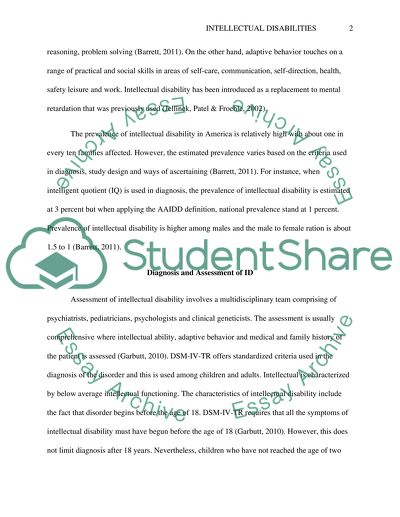Cite this document
(“Intellectual Disabilities Research Paper Example | Topics and Well Written Essays - 1500 words”, n.d.)
Retrieved from https://studentshare.org/education/1457669-intellectual-disabilities
Retrieved from https://studentshare.org/education/1457669-intellectual-disabilities
(Intellectual Disabilities Research Paper Example | Topics and Well Written Essays - 1500 Words)
https://studentshare.org/education/1457669-intellectual-disabilities.
https://studentshare.org/education/1457669-intellectual-disabilities.
“Intellectual Disabilities Research Paper Example | Topics and Well Written Essays - 1500 Words”, n.d. https://studentshare.org/education/1457669-intellectual-disabilities.


